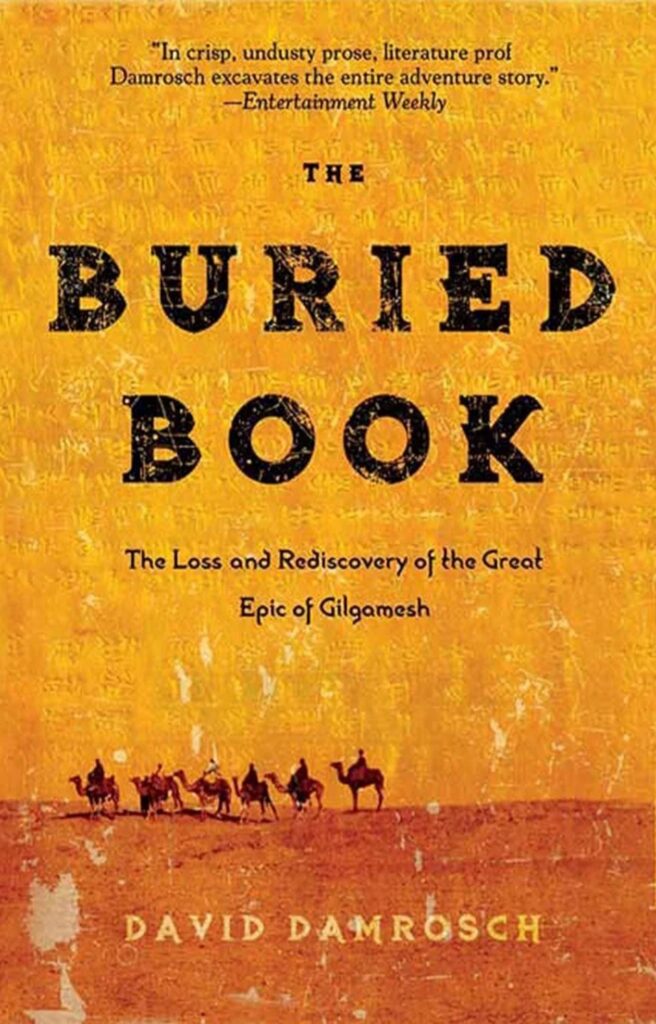
H.M. Classics Academy co-hosts a classical non-fiction book club with the Institute for Classics Education.
Everyone is welcome!
We meet on Zoom, on the last Sunday of the month at 7pm (GMT)/2pm (EST).
Reminders and the Zoom link are sent to the mailing list; join the list here: subscribepage.com/hmclassicsacademy
Our next meeting is on Sunday, 22nd February 2026, at 7pm (GMT)/2pm (ET) and we will discuss The Buried Book: The Loss and Rediscovery of the Great Epic of Gilgamesh by David Damrosch (ISBN 978-0805087253).
About The Buried Book, The Loss and Rediscovery of the Great Epic of Gilgamesh
Composed in Middle Babylonia around 1200 BCE, The Epic of Gilgamesh foreshadowed later stories that would become as fundamental as any in human history: The Odyssey and the Bible. But in 600 BCE, the clay tablets that bore the story were lost to the world, buried beneath ashes and ruins.
David Damrosch begins with the rediscovery of the epic in 1872 and from there goes backward in time, all the way to Gilgamesh himself. The Buried Book is an illuminating tale of history as it was written, stolen, lost, and–after 2,000 years and countless battles, conspiracies, and revelations–finally found.
Sunday 29th March 2026: Papyrus, The Invention of Books in the Ancient World by Irene Vallejo
Long before books were mass-produced, scrolls hand copied on reeds pulled from the Nile were the treasures of the ancient world. Emperors and Pharaohs were so determined to possess them that they dispatched emissaries to the edges of the earth to bring them back.
In Papyrus, celebrated classicist Irene Vallejo traces the dramatic history of the book and the fight for its survival. This is the story of the book’s journey from oral tradition to scrolls to codices, and how that transition laid the very foundation of Western culture. And it is a story full of heroic adventures, bloodshed and megalomania – from the battlefields of Alexander the Great and the palaces of Cleopatra to the libraries of war-torn Sarajevo and Oxford.
